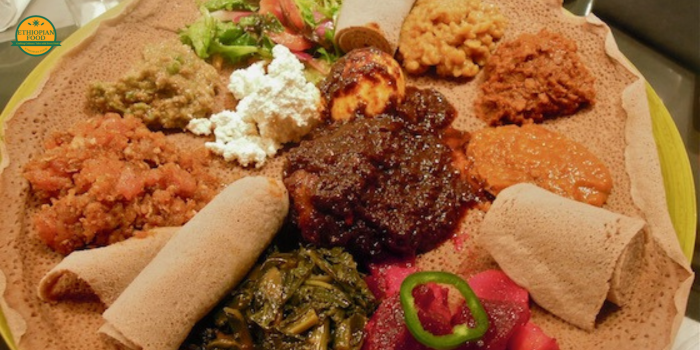Yes, Ethiopian cuisine offers a wide variety of vegan-friendly dishes that are both delicious and nutritious. The country’s culinary traditions have been shaped by centuries of Orthodox Christian fasting practices, which often involve abstaining from animal products for extended periods. This has led to the development of a rich and diverse array of plant-based dishes that are deeply ingrained in Ethiopian culture for Ethiopian food.
One of the most prominent vegan dishes in Ethiopian cuisine is the misir wot, a hearty and flavorful stew made from red lentils simmered in a blend of aromatic spices, including the iconic berbere spice mix. This protein-packed stew is typically served atop injera, the spongy, gluten-free flatbread that serves as a staple in Ethiopian meals.
Another popular vegan option is the shiro wot, a creamy stew made from ground chickpeas and seasoned with berbere, garlic, ginger, and other fragrant spices. This dish is often accompanied by injera and a variety of vegetable sides, such as gomen (collard greens), atkilt (cabbage and potato stew), or fosolia (string beans and carrots).
For those seeking a lighter fare, Ethiopian cuisine offers a range of vegan-friendly salads and vegetable dishes. The gomen, for instance, is a vibrant and flavorful dish of sautéed collard greens, infused with garlic, ginger, and spices. The atkilt, a comforting blend of cabbage, potatoes, and carrots, is another vegan-friendly option that showcases the versatility of Ethiopian vegetables.
Beyond the traditional dishes, many Ethiopian restaurants and households have adapted their recipes to cater to the growing demand for vegan and plant-based options. This has led to the creation of innovative vegan dishes, such as the ye’aarasama baaga, a flavorful combination of lentils, potatoes, and carrots seasoned with turmeric and other spices.
One of the standout features of Ethiopian vegan cuisine is the emphasis on whole, nutrient-dense ingredients. Lentils, chickpeas, and various vegetables are not only the stars of these dishes but also provide a wealth of plant-based proteins, fiber, and essential vitamins and minerals.
Moreover, the communal dining experience that is central to Ethiopian culture adds an extra layer of enjoyment to vegan meals. Dishes are typically served on a large, shared platter, with injera serving as the edible utensil for scooping up the various stews, curries, and vegetables. This shared experience fosters a sense of community and appreciation for the flavors and traditions of Ethiopia Food.
Whether you’re a dedicated vegan or simply seeking to incorporate more plant-based meals into your diet, Ethiopian cuisine offers a rich and flavorful array of options that will tantalize your taste buds while nourishing your body. With its harmonious blend of spices, textures, and wholesome ingredients, Ethiopian vegan cuisine is a testament to the country’s culinary heritage and its capacity to delight even the most discerning palates.

